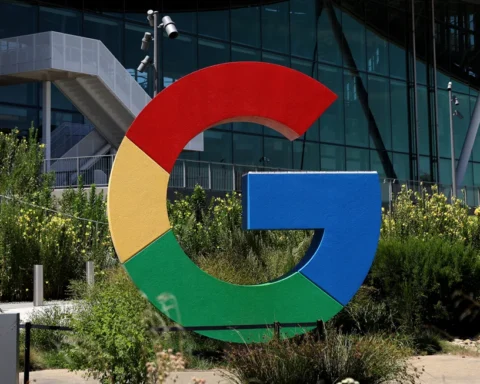
Google Removes AI Pledge Against Weapons and Surveillance in Policy Shift
Tech giant quietly revises its AI ethics guidelines, raising concerns about future military and surveillance applications.
·

The tech giant quietly updates its AI ethics principles, signaling a major shift in stance on military and surveillance applications.
Google has removed its longstanding commitment to avoiding AI applications for weapons and surveillance, marking a significant departure from its previous ethical stance on artificial intelligence.
The tech company recently updated its AI Principles page, eliminating explicit prohibitions against developing AI for weapons or surveillance beyond international norms. This change comes amid the rapid evolution of AI technology, which has outpaced regulatory frameworks and ethical guidelines.
A Shift in AI Ethics
In 2018, Google first introduced its AI Principles, a set of self-imposed ethical guidelines designed to ensure responsible AI development. Among the original commitments was a pledge not to pursue AI applications for weapons or mass surveillance. However, those restrictions have now disappeared from the company’s updated principles.
The shift coincides with growing global competition in AI, particularly as democratic nations push for leadership in the field. In a blog post on Tuesday, James Manyika, Google’s senior vice president of research, labs, technology & society, and Demis Hassabis, head of Google DeepMind, framed the update as a necessary adaptation to the evolving geopolitical landscape.
“There’s a global competition taking place for AI leadership within an increasingly complex geopolitical landscape,” the post stated. “We believe democracies should lead in AI development, guided by core values like freedom, equality, and respect for human rights.”
The post also emphasized collaboration between governments, companies, and organizations that share democratic values to develop AI that “protects people, promotes global growth, and supports national security.”
Reversing Course on Military AI
Google’s latest policy update stands in stark contrast to its previous stance on military AI. In 2018, the company withdrew from a $10 billion bid for a Pentagon cloud computing contract, citing concerns that it might conflict with its AI Principles. That same year, more than 4,000 Google employees signed a petition urging the company to establish a firm policy against building warfare technology, with about a dozen employees resigning in protest.
Now, with AI playing an increasingly central role in defense and intelligence sectors worldwide, Google appears to be softening its stance, raising questions about its future involvement in military and surveillance applications.
AI Ethics at a Crossroads
Google’s decision underscores the growing tensions between ethical commitments and the strategic imperatives of AI development in a high-stakes global race. While the company maintains that it will continue to uphold values of fairness and accountability, the removal of explicit restrictions on military AI and surveillance suggests a willingness to engage in previously off-limits areas.
As AI continues to reshape industries and national security strategies, the shift in Google’s policy highlights the need for clearer, enforceable global regulations to ensure responsible AI use.
Post Views: 318
- Trump’s New Tariff Order on Canadian Imports Sends Shockwaves Through the Stock Market
- Timothée Chalamet and Kylie Jenner Spotted Sharing a Kiss at the BNP Paribas Open, Fueling Romance Rumors
- Trump Shows Support for Musk Amid Struggles: “I’ll Buy a Tesla to Back Elon”
- Millie Bobby Brown Speaks Out Against ‘Horrible’ Media Coverage: “I Will Not Be Shamed”
BUSINESS
CEO INSIDER
This error message is only visible to WordPress admins
Error: No feed with the ID 1 found.
Please go to the Instagram Feed settings page to create a feed.
















